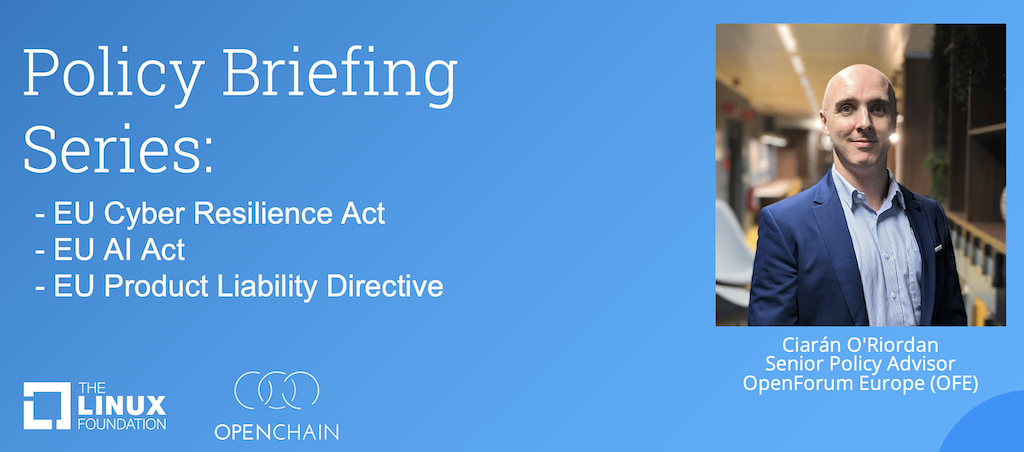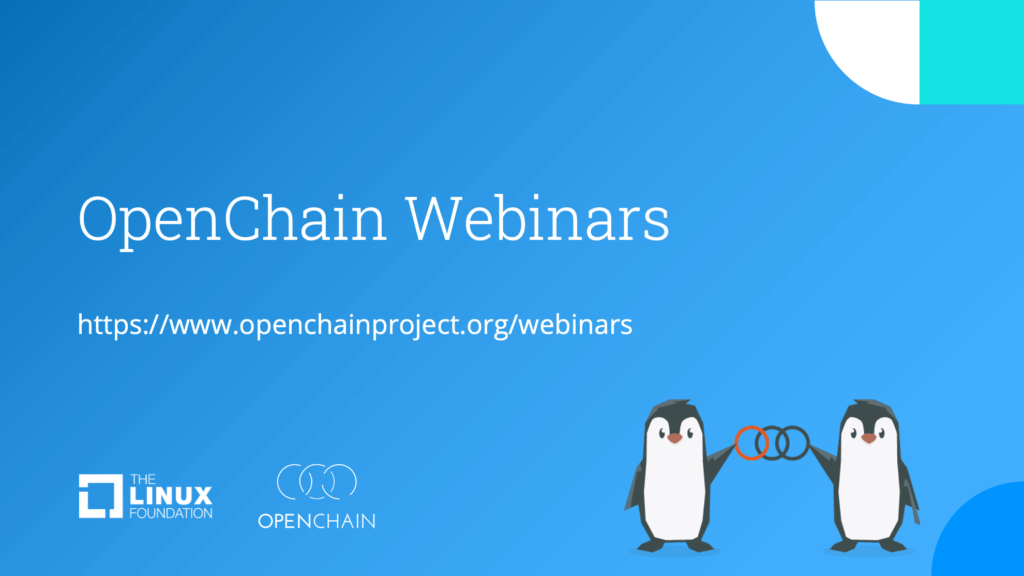
The OpenChain Project collaborated with OpenForum Europe (OFE) on a three-part series of webinars covering European policy matters that impact open source, business processes and risk management. These webinars took place between May and June 2024, and are intended to provide a simple, clear and unbiased look at the impact recent European Union policy will have on companies in the open source supply chain.
Our Speaker is Ciarán O’Riordan, Senior Policy Advisor at OFE. His background is as a free software / open source software policy and communications expert.
The EU Cyber Resilience Act
More Details
“The proposal for a regulation on cybersecurity requirements for products with digital elements, known as the Cyber Resilience Act, bolsters cybersecurity rules to ensure more secure hardware and software products. Hardware and software products are increasingly subject to successful cyberattacks, leading to an estimated global annual cost of cybercrime of €5.5 trillion by 2021.”
https://digital-strategy.ec.europa.eu/en/library/cyber-resilience-act
The EU AI Act
More Details
“The AI Act is the first-ever legal framework on AI, which addresses the risks of AI and positions Europe to play a leading role globally. The AI Act aims to provide AI developers and deployers with clear requirements and obligations regarding specific uses of AI. At the same time, the regulation seeks to reduce administrative and financial burdens for business, in particular small and medium-sized enterprises (SMEs).”
https://digital-strategy.ec.europa.eu/en/policies/regulatory-framework-ai
The EU Product Liability Directive
More Details
“European Union reached provisional (political) agreement on the text for the proposed revision of the EU’s Product Liability Directive 85/374/EEC (PLD). The PLD establishes a strict liability (i.e., no fault) regime to enable claimants to seek compensation for defective products across the EU, meaning claimants do not need to establish fault to claim successfully. As a result, it is the preferred way of making product liability claims in the EU. The revision is a significant development, as the PLD dates back to 1985 and has been virtually unchanged for nearly 40 years – with only very minor amendments in 1999.”
https://products.cooley.com/2023/12/21/new-product-liability-laws-one-step-closer-in-europe/
About OpenForum Europe (OFE), Our Partners in this Series
OFE is a not-for-profit, Brussels-based independent think tank which explains the merits of openness in computing to policy makers and communities across Europe. Originally launched in 2002 to accelerate and broaden the use of Open Source Software (OSS) among businesses, consumers and governments, OFE’s focus has since evolved to also cover issues related to Open standards, Cybersecurity, Digital Government, Public Procurement, Intellectual Property, Cloud Computing and Internet Policy.
https://openforumeurope.org/
More About Our Webinar Series

This event is part of the overarching OpenChain Project Webinar Series. Our series highlights knowledge from throughout the global OpenChain eco-system. Participants are discussing approaches, processes and activities from their experience, providing a free service to increase shared knowledge in the supply chain. Our goal, as always, is to increase trust and therefore efficiency. No registration or costs involved. This is user companies producing great informative content for their peers.
